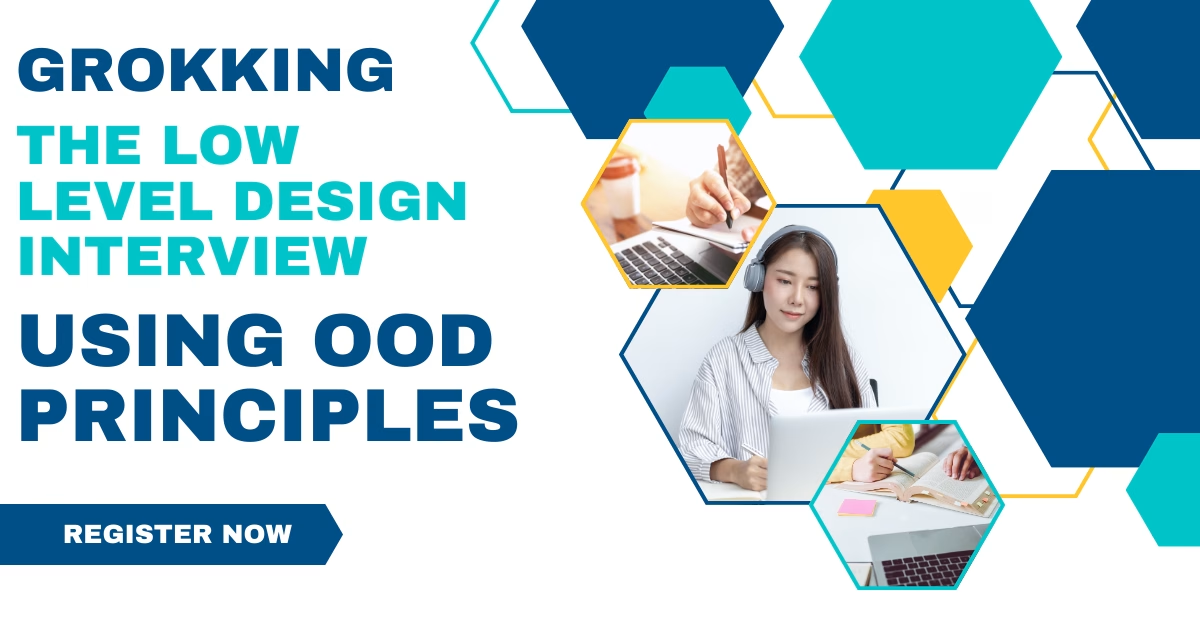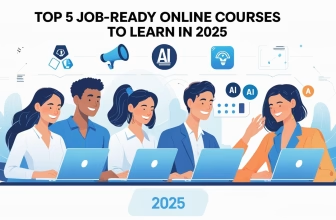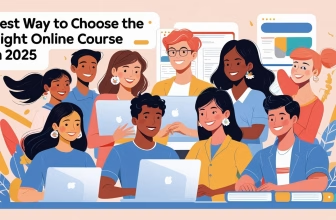Grokking the Low-Level Design Interview Using OOD Principles

For software engineers aspiring to ace technical interviews at top-tier companies, mastering low-level design (LLD) is essential. The Grokking the Low-Level Design Interview course, focused on Object-Oriented Design (OOD) principles, is a popular choice for candidates looking to build a solid understanding of designing modular, reusable, and maintainable software systems. This blog will delve deep into the course, its content, benefits, and how platforms like EdCroma can enhance your learning journey.
What is Low-Level Design (LLD)?
Low-Level Design (LLD) focuses on the internal structure of software systems. Unlike system design, which deals with high-level architecture, LLD zooms in on the individual components, their interactions, and implementation details. Engineers are expected to design class diagrams, workflows, and algorithms that align with the principles of OOD.
Importance of LLD in Interviews:
- Evaluates your problem-solving and design thinking skills.
- Tests your understanding of OOD principles like encapsulation, abstraction, inheritance, and polymorphism.
- Prepares you to write clean, efficient, and maintainable code.
Check: Grokking the Low Level Design Interview Using OOD Principles
What is Grokking the Low-Level Design Interview?
The Grokking the Low-Level Design Interview Using OOD Principles course is tailored to help engineers master LLD by solving real-world design problems. It provides a structured framework to approach design problems systematically, making it ideal for technical interviews.
Key Features of the Course:
- Focus on OOD Principles:
- Teaches fundamental principles like SOLID, DRY, and YAGNI.
- Provides practical applications of these principles in real-world scenarios.
- Comprehensive Problem Set:
- Covers frequently asked LLD problems, such as:
- Designing an Elevator System.
- Creating a Parking Lot System.
- Implementing a Library Management System.
- Covers frequently asked LLD problems, such as:
- Step-by-Step Solutions:
- Offers a detailed breakdown of problem-solving steps, including:
- Requirement gathering.
- Identifying core components and their relationships.
- Creating class diagrams and designing methods.
- Offers a detailed breakdown of problem-solving steps, including:
- Real-World Use Cases:
- Introduces design patterns such as Singleton, Factory, Strategy, and Observer.
How to Approach Low-Level Design Problems?
- Understand the Requirements:
- Identify functional and non-functional requirements.
- Clarify ambiguities by asking questions.
- Identify Core Entities:
- Break the problem into logical components.
- Use nouns from the problem statement to identify classes.
- Design Class Diagrams:
- Create relationships between classes using UML diagrams.
- Define attributes and methods for each class.
- Follow OOD Principles:
- Ensure scalability and maintainability by adhering to principles like SOLID.
- Iterate and Optimize:
- Review the design to ensure all edge cases are covered.
Why OOD Principles are Crucial for LLD
Key Principles Taught in the Course:
- Single Responsibility Principle (SRP):
- Each class should have only one reason to change.
- Example: In a library system, a Book class should only handle book-related operations.
- Open/Closed Principle (OCP):
- Classes should be open for extension but closed for modification.
- Example: Adding new vehicle types in a parking lot system without modifying existing code.
- Liskov Substitution Principle (LSP):
- Derived classes should be substitutable for their base classes.
- Interface Segregation Principle (ISP):
- Use smaller, specific interfaces rather than one large interface.
- Dependency Inversion Principle (DIP):
- High-level modules should not depend on low-level modules. Both should depend on abstractions.
Who Should Enroll in Grokking the Low-Level Design Interview?
This course is ideal for:
- Junior Engineers: Building foundational design skills.
- Mid-Level Engineers: Preparing for interviews at FAANG and other top tech companies.
- Senior Engineers: Sharpening LLD skills for leading design discussions.
How EdCroma Enhances Your Learning Journey
While Grokking courses provide theoretical and interview-focused knowledge, EdCroma offers practical, hands-on training to solidify your learning.
Key Features of EdCroma:
- Advanced Certifications:
- Gain industry-recognized credentials in software design.
- Live Projects:
- Work on real-world systems to apply LLD concepts.
- Expert Mentorship:
- Get personalized guidance from seasoned professionals.
- Mock Interviews:
- Practice mock LLD interviews tailored to FAANG standards.
- Comprehensive Resources:
- Access to additional courses on system design, coding, and other technical skills.
Why Grokking the Low-Level Design Interview is Unique
- Focused Learning:
- Tailored to teach LLD specifically for interviews.
- Simplifies complex concepts with clear explanations.
- Practical Applications:
- Emphasizes real-world scenarios, ensuring applicability beyond interviews.
- Proven Track Record:
- Highly recommended by professionals who have successfully secured jobs at top tech companies.
Key Benefits of Grokking LLD Courses
- Structured Framework: Provides a clear approach to solving design problems.
- Extensive Problem Coverage: Addresses a wide range of commonly asked interview questions.
- Scalable Learning: Suitable for learners at different career stages.
- Real-World Relevance: Prepares you for both interviews and on-the-job challenges.
FAQs
- What is Grokking the Low-Level Design Interview course?
It’s a course focused on teaching engineers how to solve LLD problems using Object-Oriented Design principles. - Is Grokking the LLD course enough for interviews?
Yes, it covers all essential concepts and problems commonly asked in interviews. Pairing it with hands-on practice enhances your preparation. - How does EdCroma complement the Grokking course?
EdCroma offers certifications, live projects, and mentorship, helping learners apply theoretical concepts in real-world scenarios. - What are the prerequisites for Grokking the LLD course?
A basic understanding of programming and OOP concepts is recommended. - Can I learn LLD without prior experience?
Yes, the course starts with basics and progresses to advanced topics, making it beginner-friendly.




